
Socializing the SDGs among children in schools
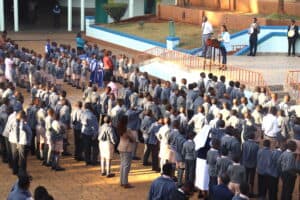
More than 500 students at St. Mary’s School Msongari, Nairobi were excited to learn about the Sustainable Development Goals (SDGs) and how they could be involved in achieving these global goals.
In a visit in the school on 6th February 202, we were honoured to interact with the students, sharing about the need to involve children in conversations and actions around the SDGs, through the SDGs club in the school.
Speaking to the students, the Executive Director of the Kenya SDGs Forum assured the students that their understanding of the SDGs would enable them contribute not only to the national development agenda but also to the global one; adding that achievement of the SDGs would make the world a better place for everyone.
Addressing the students at the morning assembly, the school Principal lauded the partnership and welcomed the idea of the SDGs club in the school, saying that it would enable the students to better understand the SDGs while contributing to their implementation. He also noted that knowledge on the SDGs would complement the students’ formal learning.
“SDGs clubs are safe spaces in schools for students to learn about the SDGs and take little but impactful actions within their context, just like the SDGs Academy for Children” Michael Adikwu, Lead, SDGs Academy for Children, Arigatou International.
This visit is part of a series of ongoing interventions with partners towards establishing SDGs clubs in schools. These clubs will be part of the greater partnership with the Arigatou International’s SDGs Academy for Children.
We are partnering with the SDGs Kenya Forum and the Kenya Flying Labs, to establish and equip the SDGs club at St. Mary’s School Msongari, Nairobi.
Arigatou International, through the SDGs academy for children believes that the best bet for a sustainable future is to teach children about the SDGs while they are young. The SDGs Academy aims to do this by providing children with simplified and easy-to-use learning tools on the SDGs. It will deliver this goal through the SDG model classroom for children that offer safe virtual and physical child-friendly spaces for interaction and exchange. Additionally, activities within the SDG Model classroom will involve a storytelling campaign for children on the SDGs, and multi-level gaming mobile applications and web apps that are relevant to children ages 4 and above.
The post <strong>Socializing the SDGs among children in schools</strong> appeared first on End Child Poverty.
The post Socializing the SDGs among children in schools appeared first on Arigatou International.

Socializing the SDGs among children in schools

More than 500 students at St. Mary’s School Msongari, Nairobi were excited to learn about the Sustainable Development Goals (SDGs) and how they could be involved in achieving these global goals.
In a visit in the school on 6th February 202, we were honoured to interact with the students, sharing about the need to involve children in conversations and actions around the SDGs, through the SDGs club in the school.
Speaking to the students, the Executive Director of the Kenya SDGs Forum assured the students that their understanding of the SDGs would enable them contribute not only to the national development agenda but also to the global one; adding that achievement of the SDGs would make the world a better place for everyone.
Addressing the students at the morning assembly, the school Principal lauded the partnership and welcomed the idea of the SDGs club in the school, saying that it would enable the students to better understand the SDGs while contributing to their implementation. He also noted that knowledge on the SDGs would complement the students’ formal learning.
“SDGs clubs are safe spaces in schools for students to learn about the SDGs and take little but impactful actions within their context, just like the SDGs Academy for Children” Michael Adikwu, Lead, SDGs Academy for Children, Arigatou International.
This visit is part of a series of ongoing interventions with partners towards establishing SDGs clubs in schools. These clubs will be part of the greater partnership with the Arigatou International’s SDGs Academy for Children.
We are partnering with the SDGs Kenya Forum and the Kenya Flying Labs, to establish and equip the SDGs club at St. Mary’s School Msongari, Nairobi.
Arigatou International, through the SDGs academy for children believes that the best bet for a sustainable future is to teach children about the SDGs while they are young. The SDGs Academy aims to do this by providing children with simplified and easy-to-use learning tools on the SDGs. It will deliver this goal through the SDG model classroom for children that offer safe virtual and physical child-friendly spaces for interaction and exchange. Additionally, activities within the SDG Model classroom will involve a storytelling campaign for children on the SDGs, and multi-level gaming mobile applications and web apps that are relevant to children ages 4 and above.
The post <strong>Socializing the SDGs among children in schools</strong> appeared first on End Child Poverty.
The post Socializing the SDGs among children in schools appeared first on Arigatou International.

Developing Policy Recommendations to Advance Faith-sensitive Mental Health and Psychosocial Support for Children on the Move
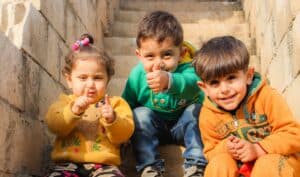
Over 150 policymakers, faith actors, representatives of governments and UN agencies and other humanitarian actors got together to produce concrete policy recommendations to advance faith-sensitive mental health and psychosocial support for children on the move.
UNICEF estimates that 37 million children are on the move in the world today. Children affected by forced migration and displacement are one of the most vulnerable groups, suffering from multiple violations of their rights and experiencing stressful and traumatic conditions that have a severe impact on their psycho-social well-being.
The rapid increase in child migration in the last decade has highlighted the need to set up specific policies and frameworks to protect children on the move.
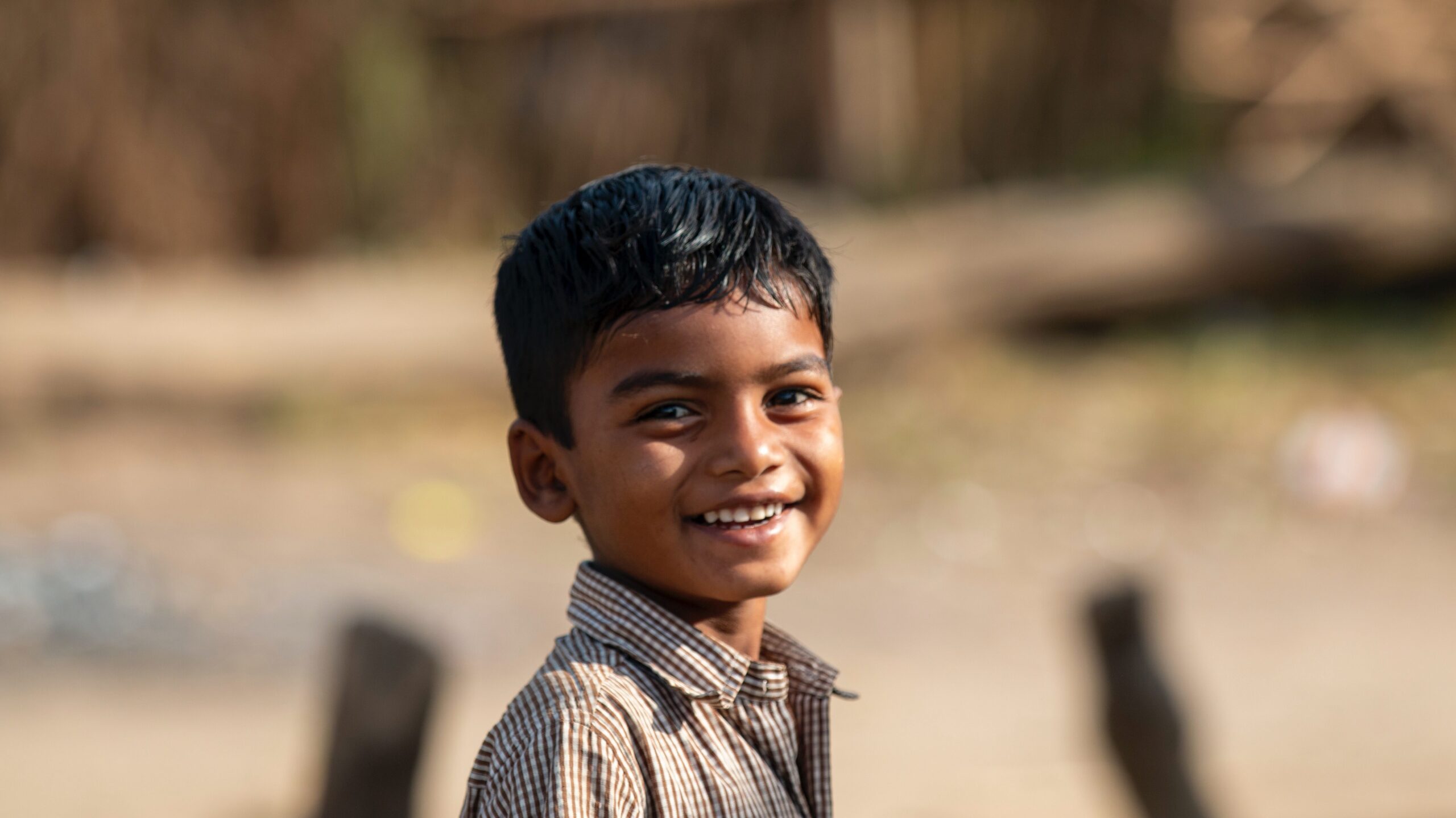
While mental health and psychosocial support of children on the move have been at the center of many effective approaches to enhance the protection and well-being of migrant children, faith-inspired psycho-social support frameworks have been largely overlooked.
“We need to meet people, children included, where they are at. We need to listen, learn, seek to understand and tailor our approaches. We need to make sure that policy leaves room for taking into consideration the religious and spiritual experience of the population in question,” stated Ms. Stephanie Shanler, Child Protection Specialist at UNICEF, during the roundtable discussion focused on Syria.
Faith-sensitive mental health and psychosocial support approaches play a crucial role in ensuring the well-being of children on the move. Spiritual nurture supports children’s resilience, acting as a protective factor positively affecting trauma responses during displacement.
Three roundtable discussions dedicated to producing policy recommendations were organized between December 2022 and February 2023. The discussions were focused on the countries of the Northern Triangle in Latin America (Guatemala, Honduras and El Salvador), Syria and Ukraine.
“It is not ‘faith-sensitive’ in terms of knowing everything about religious expression. It is very much about listening and asking questions. So much of the guidelines (Faith-Sensitive Approach in Humanitarian Response) is about mapping, assessing, listening, identifying,” highlighted Professor Alastair Ager, Director of the Institute of Global Health and Development at Queen Margaret University, at the Roundtable focused on the Ukraine crisis.
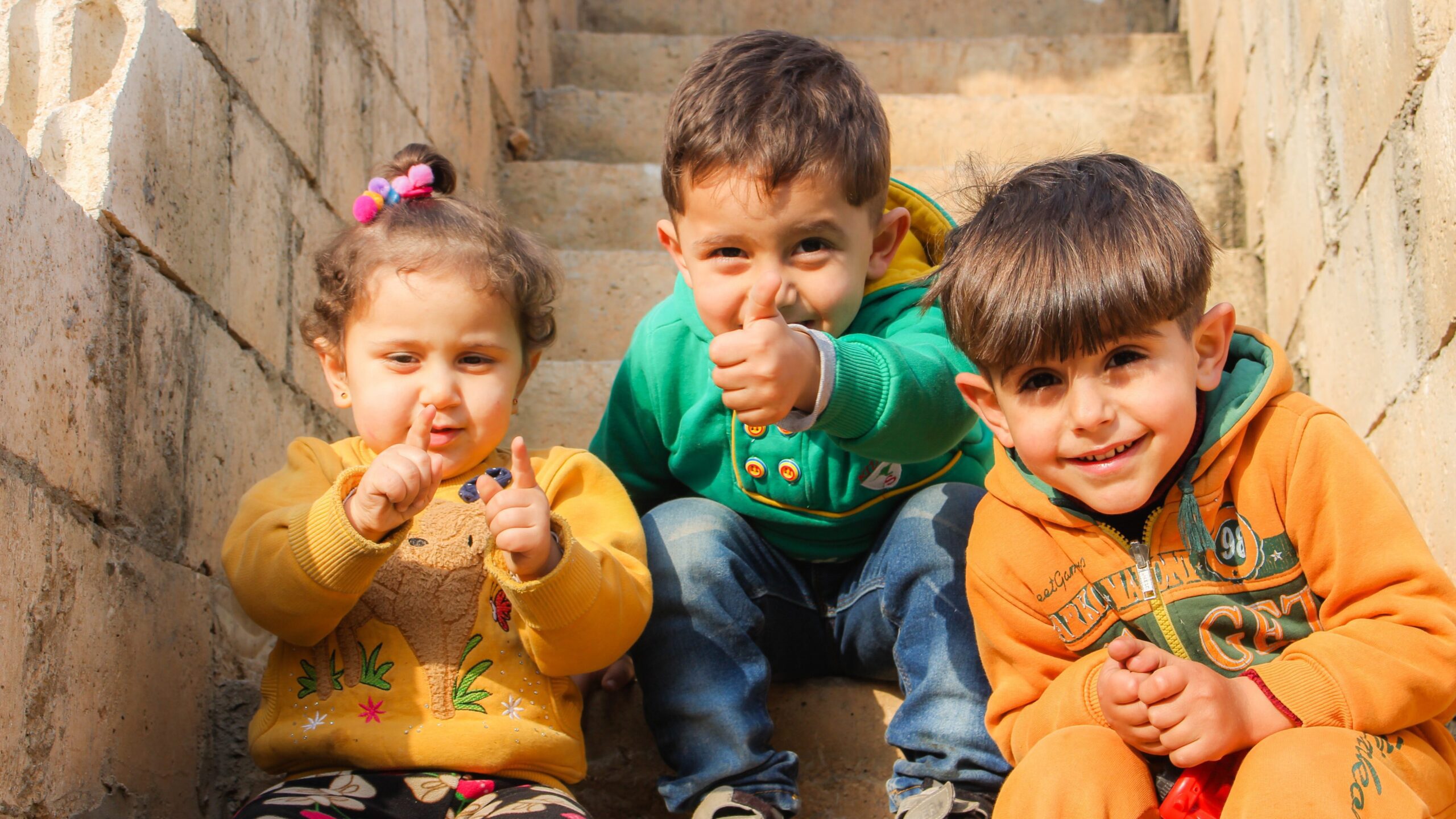
These roundtables were organized under the umbrella of the Partnership on Religion and Sustainable Development (PaRD) and sponsored by GIZ. They were co-hosted by Arigatou International, the Institute for Global Health and Development at Queen Margaret University, the United States Institute of Peace, World Vision International, KAICIID Dialogue Center, Islamic Relief Worldwide, the Network for Traditional and Religious Peacemakers and Syria Bright Future for the roundtable in Syria.
“We recognized, as we started rolling out the program, that faith leading was needed, especially as it was one of the few positive things in a child’s life that they could hold on to, that can propel positive behavior,” said Christalle Gemon, when sharing about her experience working with children and youth at the UNDP Trinidad and Tobago Accelerator Lab.
The first phase of this project took place back in 2021 when a series of three webinars were organized for educators and policymakers working with migrants and refugees in Europe. A booklet titled “Faith Sensitive Mental Health and Psychosocial Support (MHPSS) to Foster Resilience in Children on the Move” was launched in November 2021 as part of the project. The booklet builds on the reflections and recommendations collected during the series of webinars.
The policy discussions helped translate the knowledge and best practices outlined in the booklet into concrete policy recommendations. A policy brief will be developed in the first half of 2023 to inform the efforts of host governments and other relevant stakeholders in supporting, adopting and implementing faith-sensitive mental health and psychosocial support approaches as part of a broader strategy to foster peacebuilding and sustaining peace.
The post Developing Policy Recommendations to Advance Faith-sensitive Mental Health and Psychosocial Support for Children on the Move appeared first on Ethics Education for Children.
The post Developing Policy Recommendations to Advance Faith-sensitive Mental Health and Psychosocial Support for Children on the Move appeared first on Arigatou International.

Developing Policy Recommendations to Advance Faith-sensitive Mental Health and Psychosocial Support for Children on the Move

Over 150 policymakers, faith actors, representatives of governments and UN agencies and other humanitarian actors got together to produce concrete policy recommendations to advance faith-sensitive mental health and psychosocial support for children on the move.
UNICEF estimates that 37 million children are on the move in the world today. Children affected by forced migration and displacement are one of the most vulnerable groups, suffering from multiple violations of their rights and experiencing stressful and traumatic conditions that have a severe impact on their psycho-social well-being.
The rapid increase in child migration in the last decade has highlighted the need to set up specific policies and frameworks to protect children on the move.

While mental health and psychosocial support of children on the move have been at the center of many effective approaches to enhance the protection and well-being of migrant children, faith-inspired psycho-social support frameworks have been largely overlooked.
“We need to meet people, children included, where they are at. We need to listen, learn, seek to understand and tailor our approaches. We need to make sure that policy leaves room for taking into consideration the religious and spiritual experience of the population in question,” stated Ms. Stephanie Shanler, Child Protection Specialist at UNICEF, during the roundtable discussion focused on Syria.
Faith-sensitive mental health and psychosocial support approaches play a crucial role in ensuring the well-being of children on the move. Spiritual nurture supports children’s resilience, acting as a protective factor positively affecting trauma responses during displacement.
Three roundtable discussions dedicated to producing policy recommendations were organized between December 2022 and February 2023. The discussions were focused on the countries of the Northern Triangle in Latin America (Guatemala, Honduras and El Salvador), Syria and Ukraine.
“It is not ‘faith-sensitive’ in terms of knowing everything about religious expression. It is very much about listening and asking questions. So much of the guidelines (Faith-Sensitive Approach in Humanitarian Response) is about mapping, assessing, listening, identifying,” highlighted Professor Alastair Ager, Director of the Institute of Global Health and Development at Queen Margaret University, at the Roundtable focused on the Ukraine crisis.

These roundtables were organized under the umbrella of the Partnership on Religion and Sustainable Development (PaRD) and sponsored by GIZ. They were co-hosted by Arigatou International, the Institute for Global Health and Development at Queen Margaret University, the United States Institute of Peace, World Vision International, KAICIID Dialogue Center, Islamic Relief Worldwide, the Network for Traditional and Religious Peacemakers and Syria Bright Future for the roundtable in Syria.
“We recognized, as we started rolling out the program, that faith leading was needed, especially as it was one of the few positive things in a child’s life that they could hold on to, that can propel positive behavior,” said Christalle Gemon, when sharing about her experience working with children and youth at the UNDP Trinidad and Tobago Accelerator Lab.
The first phase of this project took place back in 2021 when a series of three webinars were organized for educators and policymakers working with migrants and refugees in Europe. A booklet titled “Faith Sensitive Mental Health and Psychosocial Support (MHPSS) to Foster Resilience in Children on the Move” was launched in November 2021 as part of the project. The booklet builds on the reflections and recommendations collected during the series of webinars.
The policy discussions helped translate the knowledge and best practices outlined in the booklet into concrete policy recommendations. A policy brief will be developed in the first half of 2023 to inform the efforts of host governments and other relevant stakeholders in supporting, adopting and implementing faith-sensitive mental health and psychosocial support approaches as part of a broader strategy to foster peacebuilding and sustaining peace.
The post Developing Policy Recommendations to Advance Faith-sensitive Mental Health and Psychosocial Support for Children on the Move appeared first on Ethics Education for Children.
The post Developing Policy Recommendations to Advance Faith-sensitive Mental Health and Psychosocial Support for Children on the Move appeared first on Arigatou International.

GNRC India Committee Launch
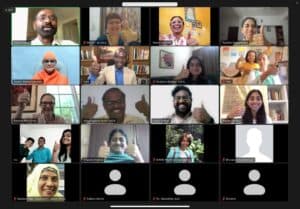
On July 26th, 2022, GNRC India launched its committee in a virtual event that had over sixty adults and one hundred and twenty children participants from different faiths, mainly Hinduism, Islam, Christianity, and Buddhism.
Mr. Vijayaragavan Gopal, Coordinator, GNRC India, shared their vision, introduced their initiatives, and outlined the role of the committee members. “A proud moment for all of us indeed. I am sure that the committee will put in the best of efforts in knowledge to achieve our common vision that every child has a right to a dignified life” he stated.
Arigatou International initiatives Directors, from Prayer and Action for Children, and End Child Poverty, Ms. Rebeca Rios-Kohn and Rev. Fred Nyabera, respectively, joined Dr. Mustafa Y. Ali, Secretary General, GNRC, in congratulating GNRC India on their launch.
The event came to an end after Dr. Mustafa pronounced GNRC India Committee officially launched.
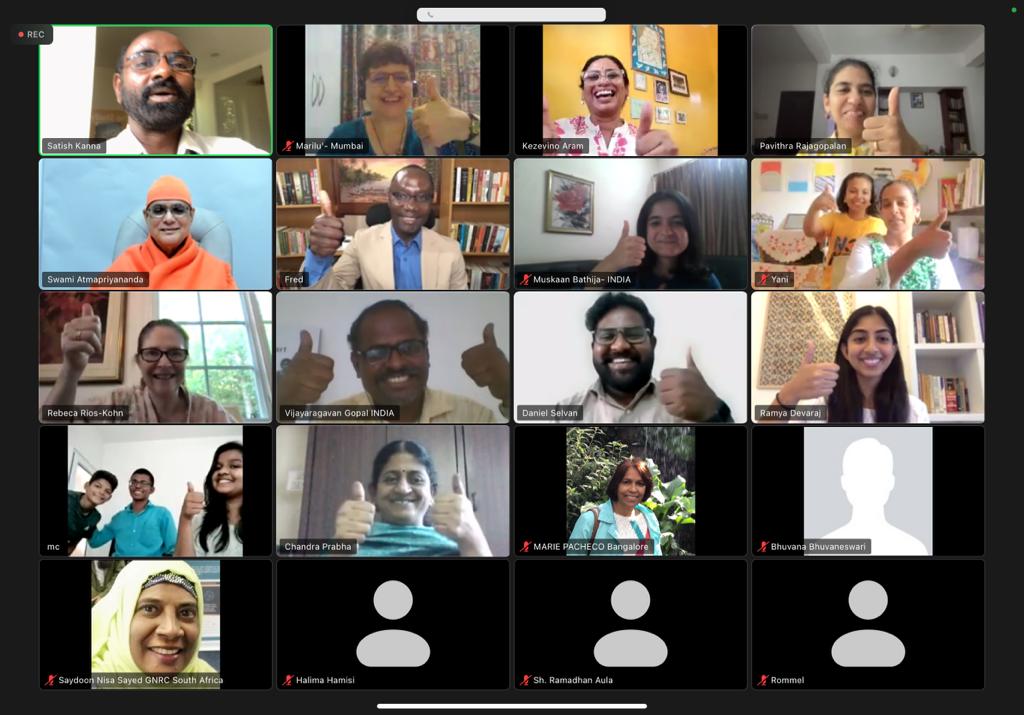
The post <strong>GNRC India Committee Launch</strong> appeared first on Global Network of Religions for Children.
The post GNRC India Committee Launch appeared first on Arigatou International.






